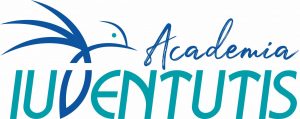24-25 November 2023, University of Bucharest
Food and drinks are more than just basic necessities for our survival; they have served as cultural markers that reflect our history, traditions, and aspirations. Recent interdisciplinary research has revealed the intricate processes involved in the production, distribution, consumption, and recycling of food, shedding light on its impact on individuals, societies, and the environment. This heightened awareness has led to a general interest in the representations of edible material in literature among writers, literary scholars, and cultural theorists alike. By exploring the literary significance of food, we gain a deeper understanding of its cultural and social implications, making it an essential subject of study for anyone concerned with the intricacies of human culture.
Although food studies have traditionally been seen as more fitting in disciplines such as anthropology, sociology, history, and geography, recent shifts in cultural and social attitudes have brought the study of food and drinks to the forefront of scholarly research. With the rise of feminist waves, the postcolonial turn, the technologization and politicization of food, and the expansion of food movements, there has been a better understanding of the importance of food in shaping our identity. As a result, scholarly research on food has become increasingly respected, with literature now being recognized as an important field of study for exploring the multifaceted role of nourishment in society.
Within this framework, researchers are invited to explore the way in which literature – prose, poetry, drama, folklore, religious texts, and graphic narratives – illustrates our complex relationship with food and drinks. Given the growing interest in the cross-cultural influences of gastronomy, literature has the potential to offer valuable insights into the ways different cultures approach cooking and eating. Key questions to explore may include who prepares and consumes food, what, where, when, and how food is produced and consumed, and the broader implications of these practices for individuals and society. Ultimately, literature has the power to reveal new perspectives and offer innovative solutions to the challenges we face in our ongoing engagement with nutrition.
Authors who would like to participate online or onsite are invited to send a 250-word abstract, five keywords, a short bibliography, and a 100-word bio to the panel organizers, Monica Manolachi, monica.manolachi@lls.unibuc.ro, and Lorena Mihăeş, lorena.mihaes@lls.unibuc.ro, by 1 November 2023.
Participation fee: 100 RON (teaching staff) / 50 RON (students). Details about payment and accommodation will be provided to the contributors at a later date.
A selection of articles based on the presentations will be published in a themed volume or a highly indexed academic journal. See this Specialized Bibliography or below for recent publications in the field.

